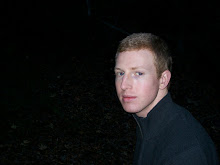Wasted time is murder of sorts. You sense that in order to not commit this crime you must be able to ‘recourse.’ To recourse is to return to your highest purpose, to get in touch with the warmth and meaning of the endeavors of your circumstances. Such a movement, in order to be an effective tool, must be made available in a variety of habitats and moods. It must be utilized not just in moments of ease and deliberation, but also in moments of crisis, and in moments of near despair and pervasive dissatisfaction. More important still, this most-basic-vocabulary, this grounding project, will need to be sensed when distraction sets in or is about to occur – for movements of distraction and escape are far more prevalent than crisis in an environment of air conditioning, automobiles, Avon, and supermarkets.
So, the most-basic-vocabulary will need to be fleshed out, translated from experiential value to existential project. Trust in the project is essential. Deliberate projects, that is, goals that one makes a resolution to bring about do not often work. Sleep sets in. One forgets the ‘why’ of the project and so the effort to remain resolute loses its justification subjectively.
The problem of how to remain resolute has been with you for sometime – at least since you independently undertook to face your fears socially. Philosophically, you noticed Gurdjieff/Ouspensky and Krishnamurti to be talking about this problem: How to stay awake, they would say. Hyrum Smith in his book on Natural Laws of Success articulated many helpful things in this direction. Yet there is still the problem. There is still the submitting to sleep, the forgetting, the hopeless lost feeling of having no most-basic-vocabulary ‘at-hand’, for you often fall off, give in to pressures, to peers, you often indulge in entertainment and other releases, waking up out of their resultant hallucinations days later. As for meditation, you stopped looking at this direction because of its hurdle of boredom. Perhaps it is essential to get beyond this.
There is, though, the yearning for purity, for clean honesty, for a practice and a walking of the path at a stable speed.
If you blame a lot of this suffering from self-forgetting on environment, and you feel a lot of it is because of the ‘noise of thought’ of the familiar – from expectation and poor ways of living of family and community – then how do you live upright, stably, purely, in this environment until you move up to Arcata in January? How to prevent entanglement?
